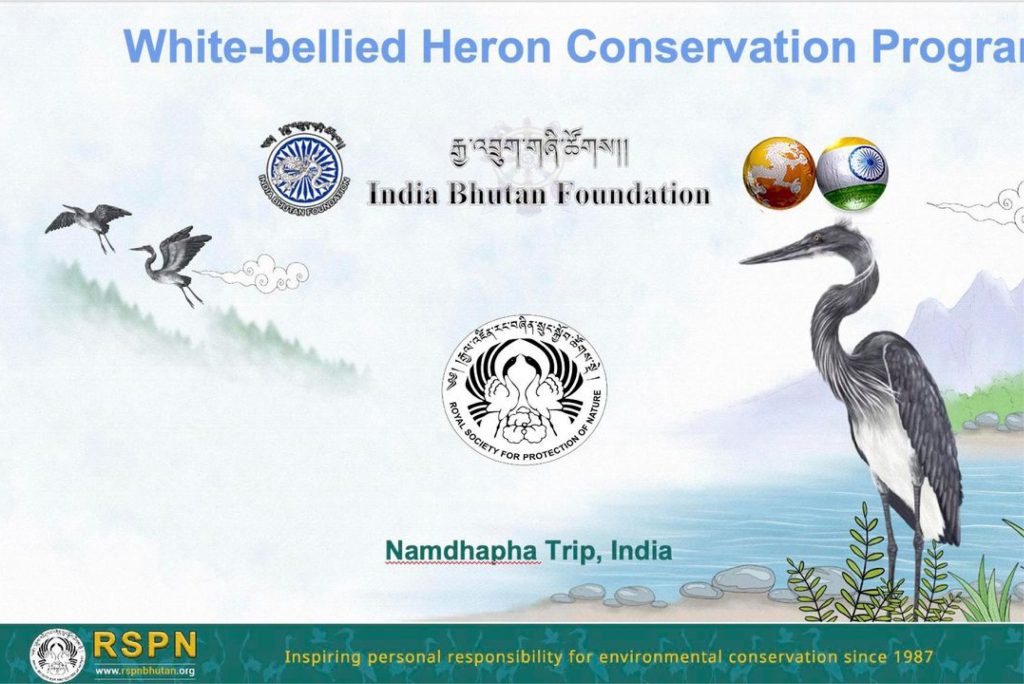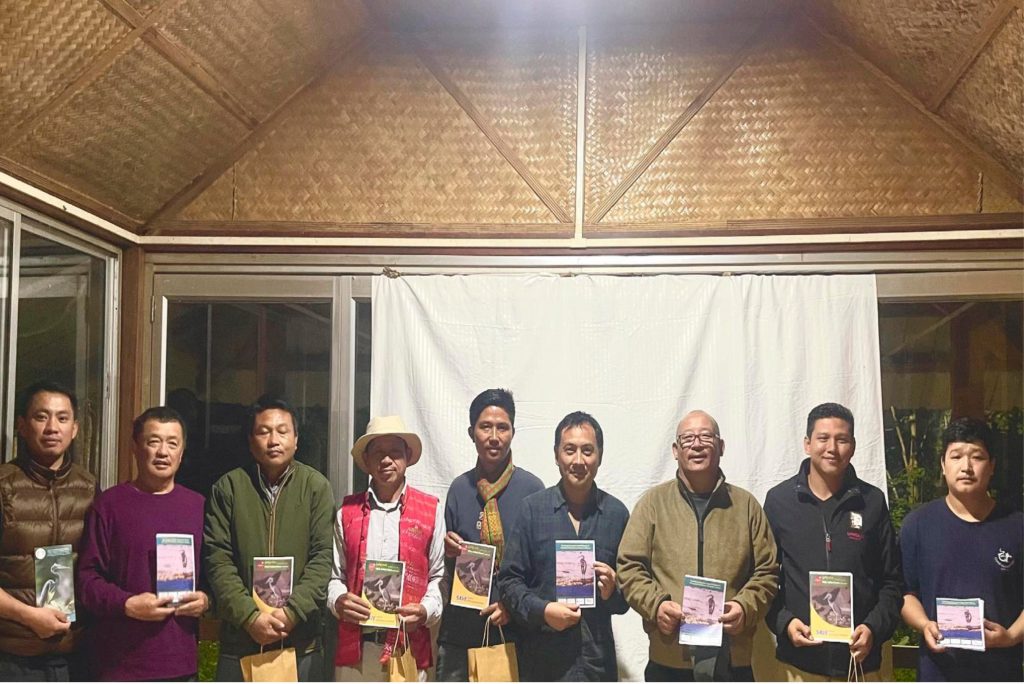With an objective to foster Regional Conservation Partnership between India and Bhutan towards the conservation of critically endangered White-bellied Heron (WBH) from extinction, officials from the Royal Society for Protection of Nature (RSPN) and Department of Forest and Park Services (DoFPS) visited the Namdhapha National Park and Tiger Reserve, Arunachal Pradesh from 1st to 8th November 2023 under the financial support of India Bhutan Foundation.
Lessons and good practices learnt from the visit: Concerted and coordinated regional collaboration among the WBH range countries is indispensable given the transboundary nature of WBH. Without collective effort, an exemplary WBH conservation practice in one country may tackle part of the issue only.
There is an imminent need in developing a country-specific WBH Conservation Action Plan, especially for WBH range countries such as India and Myanmar. Bhutan has one prepared already and it is under implementation. Once the country specific conservation plan is developed, scaling it up to regional conservation plan is essential.
It is important to share and disseminate lessons learnt, best practices and research findings of WBH among the WBH range countries through international seminars, workshops and institutional visits. A similar exchange visits for the Indian counterpart to Bhutan will add value as Bhutan seems to be ahead in the conservation of White-bellied Heron.
For a WBH conservation to succeed and ultimately save it from extinction, tripartite collaborations among CSOs, Governments and communities in all WBH range countries are critical.
The RSPN Team found the visit to be educative and timely and would like to thank India Bhutan Foundation (IBF) for the financial support and ATREE (An NGO in India working on Ecology & Environment and currently undertaking research on WBH) for facilitating the visit, including logistics.
Click here to read the full report


Copyright © 2026 RSPN All Rights Reserved